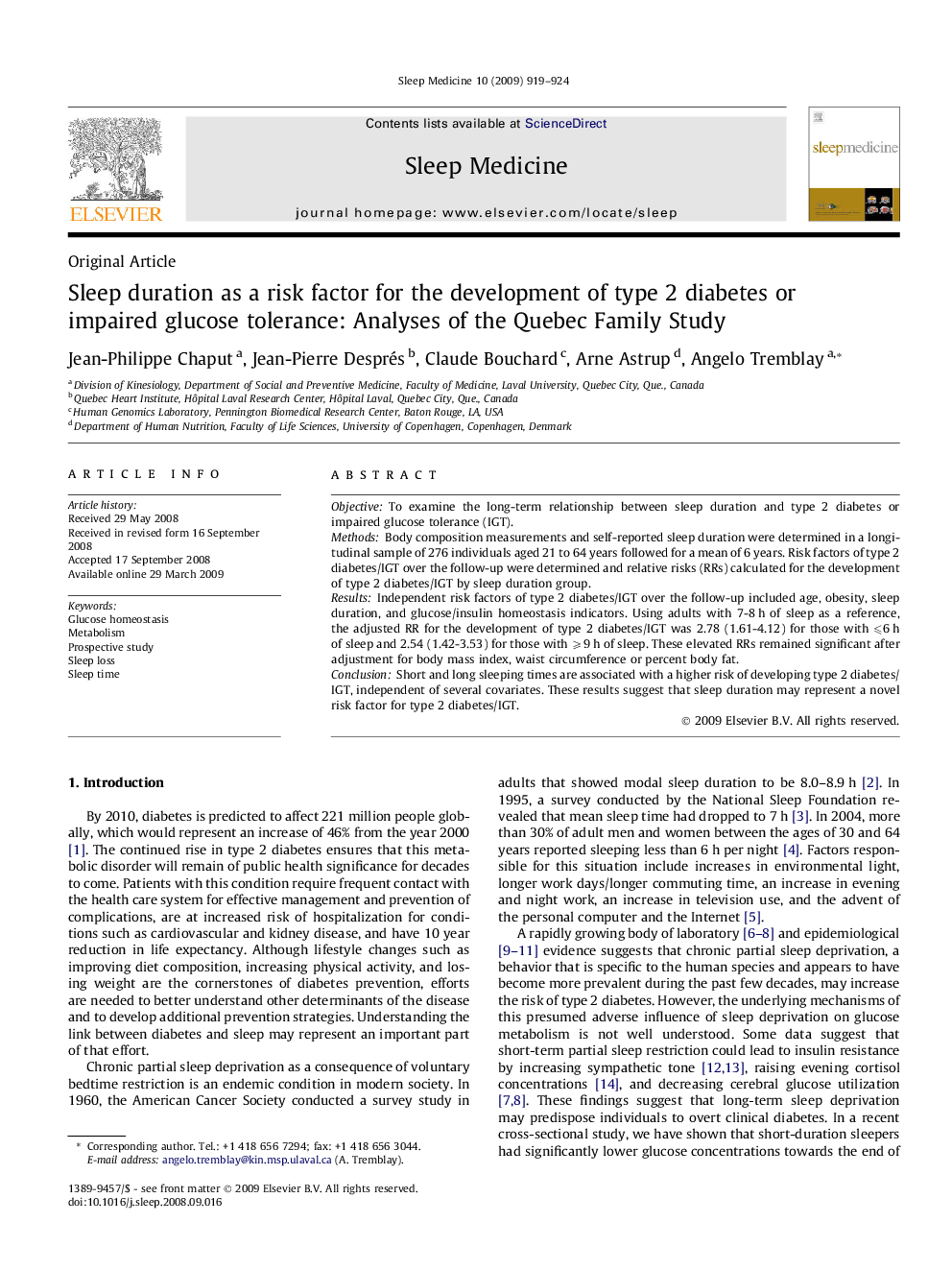| Article ID | Journal | Published Year | Pages | File Type |
|---|---|---|---|---|
| 3176797 | Sleep Medicine | 2009 | 6 Pages |
ObjectiveTo examine the long-term relationship between sleep duration and type 2 diabetes or impaired glucose tolerance (IGT).MethodsBody composition measurements and self-reported sleep duration were determined in a longitudinal sample of 276 individuals aged 21 to 64 years followed for a mean of 6 years. Risk factors of type 2 diabetes/IGT over the follow-up were determined and relative risks (RRs) calculated for the development of type 2 diabetes/IGT by sleep duration group.ResultsIndependent risk factors of type 2 diabetes/IGT over the follow-up included age, obesity, sleep duration, and glucose/insulin homeostasis indicators. Using adults with 7-8 h of sleep as a reference, the adjusted RR for the development of type 2 diabetes/IGT was 2.78 (1.61-4.12) for those with ⩽6 h of sleep and 2.54 (1.42-3.53) for those with ⩾9 h of sleep. These elevated RRs remained significant after adjustment for body mass index, waist circumference or percent body fat.ConclusionShort and long sleeping times are associated with a higher risk of developing type 2 diabetes/IGT, independent of several covariates. These results suggest that sleep duration may represent a novel risk factor for type 2 diabetes/IGT.
